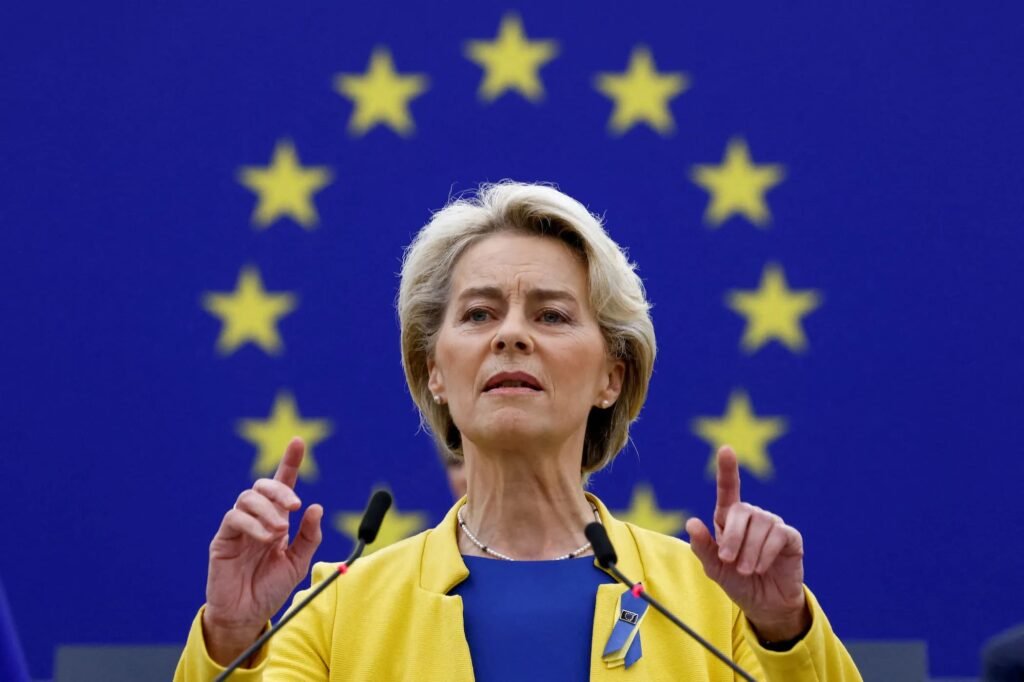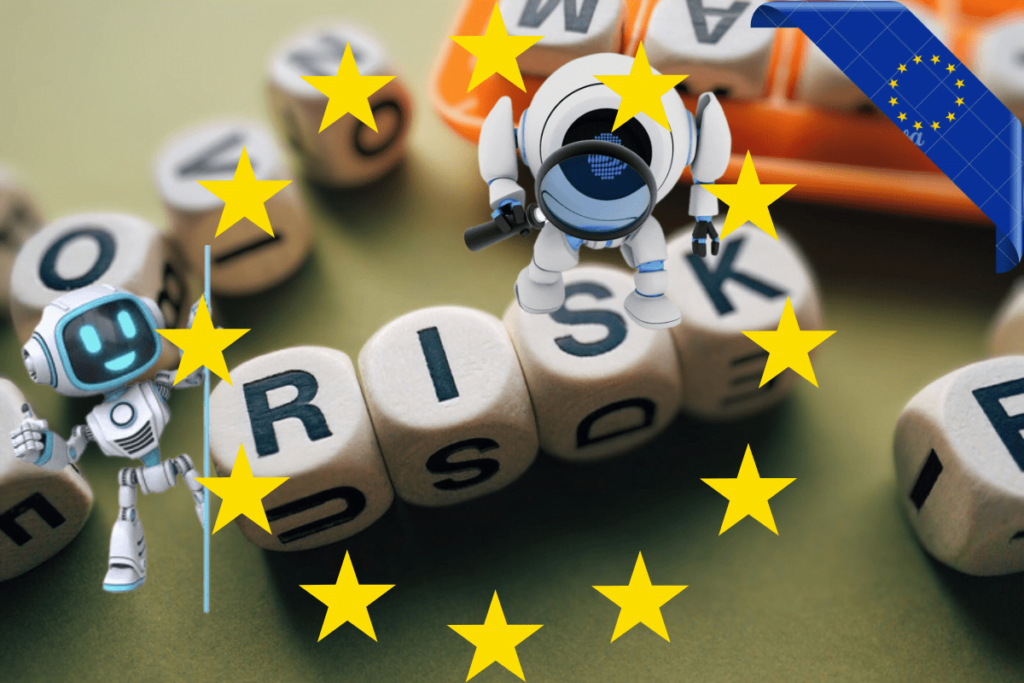Introduction: Artificial Intelligence-AI Risks
In an era where technology is racing ahead at breakneck speed, one thing is clear – the future will be digital. Artificial Intelligence (AI) stands at the forefront of this digital revolution, holding both the promise of tremendous opportunities and the shadow of daunting risks. European Commission President Ursula von der Leyen recently addressed the pressing need for a new global framework to tackle AI risks at the ‘One Future’ session of the G-20 Summit.
The Dual Nature of AI
As von der Leyen eloquently put it, AI is a double-edged sword. On one hand, it has the potential to reshape industries, enhance healthcare, and drive innovation to unimaginable heights. On the other hand, AI poses systemic societal risks that demand immediate attention.
The Call for Regulation
What’s intriguing is that even the pioneers and inventors of AI are advocating for political leaders to step in and regulate this transformative technology. In 2020, the European Union took the pioneering step of presenting the world’s first law on Artificial Intelligence. Their goal? To balance the fostering of innovation with building trust among the masses. However, according to von der Leyen, this is just the beginning.
A Global Framework for AI Risks
Von der Leyen emphasizes that the world’s response to AI risks today will shape our future. She passionately advocates for Europe and its global partners to come together and develop a comprehensive global framework that addresses the multifaceted challenges posed by AI. This framework should not only shield us from AI’s dark side but also encourage investments in safe and responsible AI systems.
An IPCC-Like Body for AI
On a global scale, the call is for something akin to the Intergovernmental Panel on Climate Change (IPCC). Von der Leyen proposes the creation of a body that involves scientists, entrepreneurs, and innovators. Their mission: is to provide the world with in-depth knowledge regarding AI risks and benefits. Such an entity would be vital in steering the course of AI technology in a direction that is both advantageous and safe for humanity.
Artificial Intelligence-AI Risks: Digital Public Infrastructures as a Catalyst
President von der Leyen also highlights the role of digital public infrastructures in this transformative journey. She commends India’s remarkable success in rolling out its digital public infrastructures and expresses support for the country’s initiatives. The president believes that these infrastructures can act as a powerful catalyst for emerging economies, provided they are built to be interoperable, open to all, and trusted.
Conclusion
In the midst of the digital revolution, the call to action is clear: a new global framework for managing the risks of Artificial Intelligence is essential. President von der Leyen’s words resonate not only with Europe but with the entire world. The time has come for collective efforts to harness the immense potential of AI while safeguarding society from its pitfalls.
In a world going digital, Artificial Intelligence (AI) offers both incredible opportunities and scary risks. European Commission President Ursula von der Leyen says it’s crucial to make rules for AI. In 2020, the EU made the first AI law to balance innovation and trust. But now, she thinks the world needs a new plan to deal with AI risks together.
She also says we need a group like the one for climate change (IPCC) but for AI. Scientists, inventors, and entrepreneurs should help us understand the risks and benefits of AI.
And digital public systems, like what India is doing, can help grow economies. But they should be open and trusted.
Informative FAQs and People Also Ask
FAQs:
- What are Artificial Intelligence (AI) risks?
- AI risks refer to the potential negative consequences and challenges associated with the use of AI technology, such as privacy breaches, biases, and job displacement.
- Why is regulating AI important?
- Regulating AI is crucial to ensure that its development and deployment are safe and ethical, and do not harm society. It helps strike a balance between innovation and protecting people’s interests.
- What is the EU’s role in AI regulation?
- The EU took a pioneering step in 2020 by presenting the world’s first law on Artificial Intelligence, aiming to facilitate innovation while building trust among the public.
- What is the Intergovernmental Panel on Climate Change (IPCC)?
- The IPCC is a global body of scientists and experts that assesses and reports on climate change, providing crucial insights to guide global climate policies.
- How can digital public infrastructures benefit economies?
- Digital public infrastructures can boost emerging economies by providing accessible and trusted digital services, fostering economic growth and innovation.
People Also Ask:
- Who is Ursula von der Leyen?
- Ursula von der Leyen is the President of the European Commission, the executive branch of the European Union.
- What are the societal risks of AI?
- Societal risks of AI include privacy infringements, biases in AI algorithms, and the potential for job displacement due to automation.
- What is the role of scientists in AI regulation?
- Scientists play a crucial role in AI regulation by providing expertise and conducting research to assess AI’s impact on society.
- How can AI innovation be balanced with trust?
- Balancing AI innovation with trust involves creating regulations and ethical guidelines to ensure that AI systems are developed and used responsibly.
- What are digital public infrastructures in India?
- Digital public infrastructures in India are government initiatives aimed at providing digital services and connectivity to citizens, businesses, and institutions.
Are We on the Brink of an AI Catastrophe? Uncover the Enigma
Are We on the Brink of an AI Catastrophe? Uncover the Enigma



1 comment
[…] Hu, a former software engineer turned entrepreneur, embarked on a new career path as a freelance artificial intelligence expert. His journey represents a growing trend in the freelance tech job market. Generative AI, in […]